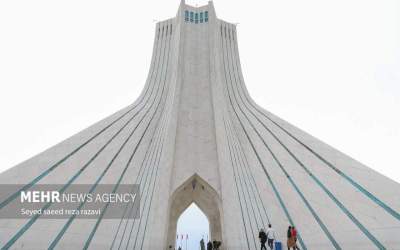In a televised interview, Araqchi said he had witnessed Europe's seriousness in advancing negotiations with Iran but was not sure about the Europeans' ability to realize Iran's demands.
Head of the expert team for negotiations with Europe said 'In the first place, the Europeans should clarify how they are going to meet Iran's demands. The leaders of three European countries have said they will prepare a package of proposals for Iran in the economic domain. This package in fact contains practical solutions. Some sanctions must be lifted with tangible economic impacts.'
Araqchi said the Europeans are going to determine a series of practical solutions on Iranian oil and gas sales as well as banking issues as two key points envisioned in the Joint Comprehensive Plan of Action (JCPOA).
In the second Place, Araqchi said, they should say how they are going to give guarantees as is the case of the conditions set by the Supreme Leader of the Islamic Revolution Ayatollah Ali Khamenei. They should give assurances that their promises would be materialized without delays or cases of non-commitments, he added.
In response to a question, the deputy foreign minister said the country's missile program is the red line of the Iranian negotiating team and no talks will be held on the issue.
He said Iran has agreed to hold talks with the four European countries on the issue of Yemen on humanitarian grounds and due to the sufferings of the Yemeni people.
Referring to US President Donald Trump's efforts over the past 16 months to exit from the JCPOA, Araqchi said 'He (Trump) initially tried to prepare the ground (for withdrawal from the deal) and make the Islamic Republic pay the price. But we did not fall into his trap and said if Trump wanted to leave the JCPOA he himself had to pay the price. He then threw the ball into the ground of the Congress but to no avail.'
Araqchi said when it was clear that Trump intended to exit the JCPOA, the Europeans asked Iran to give them some time to make their efforts so that they might meet its demands.
Their message was conveyed at the highest level and the esteemed president of Iran decided to give them a few weeks and this is why the Iranian negotiating team is engaged in holding negotiations with them, Araqchi said.
After Trump announced his withdrawal from the Iran deal, there was a chaos in the stands of the Europeans because their assumption until the last minutes was that the US would stay in the deal and would give diplomacy a chance. 'However, they did not expect such a sudden and straightforward exist on the part of the US and for this reason we heard very contradictory interpretations from the Europeans.'
Araqchi said 'As for the Europeans, it is necessary to understand that in order for Europe to continue cooperation with Iran within the JCPOA in the absence of the US, they have to overcome two major problems.
'Their first problem is political. Europe and the US have strategic partnership but this partnership does not mean that they see eye to eye on every issue particularly in recent period of time when a rift has been created between them due to Trump's stands. However there is a strategic unity between them.'
He said it would be difficult for Europe to distance itself from its strategic partner under present circumstances and stand by Iran, Russia and China in order to save the JCPOA. This explains why Europe has taken contradictory stands .
However, Europe has turned down US Secretary of State Mike Pompeo's proposal on formation of a new alliance against Iran, he said.
On the other hand, Araqchi said, Europe is facing the Iranian nation's pressure and deadline.
'There is also a technical problem. In Europe, companies work based on the decisions of their boards of directors. Economic profit is very important to them. Many of these firms have very large markets in the US and thus they do not want to lose them,' he said.
He cited Total and Airbus companies as examples, saying that the Americans own 49 percent of the stakes of Total and this cause the company to be uncertain . 'This is one of the challenges faced by Europe for staying in the JCPOA. In Iran's views, it is the Europeans that should make decision. They should solve this problem if they want Iran to stay in the deal. We should see whether they will be able to overcome big challenges created in the wake of US withdrawal from the JCPOA.'
In response to another question on French President Emmanuel Macron's proposals on making an amendment to the JCPOA or negotiations on Iran's missile program, Araqchi said 'Macron and others may want to talk with Iran on missiles or other issues but any negotiations have two parties. As long as Iran has no will, no talks will be held. We have announced time and again that the JCPOA has nothing to do with other issue.'
Asked to what extent one can be optimistic about talks with Europe, Araqchi replied 'None. In our negotiations we do not work on the basis of optimism or pessimism but based on realities on the ground.'
The deputy foreign minister reiterated 'If our interests without the US are met we will stay in the deal or else we will exit from it. Of course this will have some expenses for us but this does not mean the others will not incur losses. Basically, the JCPOA is not an economic agreement. It is a political and security pact in the domain of non-proliferation of nuclear weapons. In the opinion of the world, it is an agreement that has solved a nuclear crisis through diplomacy.
Its loss will undermine the whole non-proliferation system and will have consequences for the region.'
# Tags










